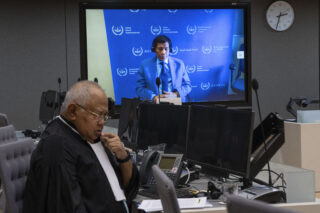“THE BASQUES refer to themselves as euskaldu-nak, which means “speaker of Euskara,” the Basque language. “They call their homeland Euskal Herria, although they have never had their own nation-state … Some scholars claim that the Basques were the first inhabitants of the Iberian Peninsula and even the oldest surviving ethnic group in Europe. But the Basques’ first claim to uniqueness is their language, Euskara, whose origin is shrouded in mystery…”
“Basque culture has survived despite centuries of foreign influence, be it Roman, Frank, Visigoth, Moor, Spanish or French. After incorporation of the Basque Country within Spain during the 13th and 14th centuries (although Navarre remained an independent kingdom until 1512 when it succumbed to Castille), Basques have continuously enjoyed autonomy for centuries in exchange for loyalty to the Spanish Crown.”
“Basques are normally identifiable by their sonorous surnames, which often refer to places such as Bilbao, Elizondo, Loyola and Zumarraga. A number of surnames are related to homestead (eche, or etxe): Echeverria, Echegoyen, Echegaray, … or names of trees: for example, areitz, or aretx (oak), from which hundreds of Basque surnames are derived: Areizaga, Aretxaga, Aresti and so on … Other surnames are rooted in geographical features—mountains (mendi), valley (ibar), prairie (larre) and valley (aran), to name just a few. Prominent surnames are Mendiburu, Ibarra, Larreta and Arana….”
(Excerpted from Marciano R. de Borja, 2005. “Basques in the Philippines.” Reno, Las Vegas: University of Nevada Press, pp. 1-3.)



